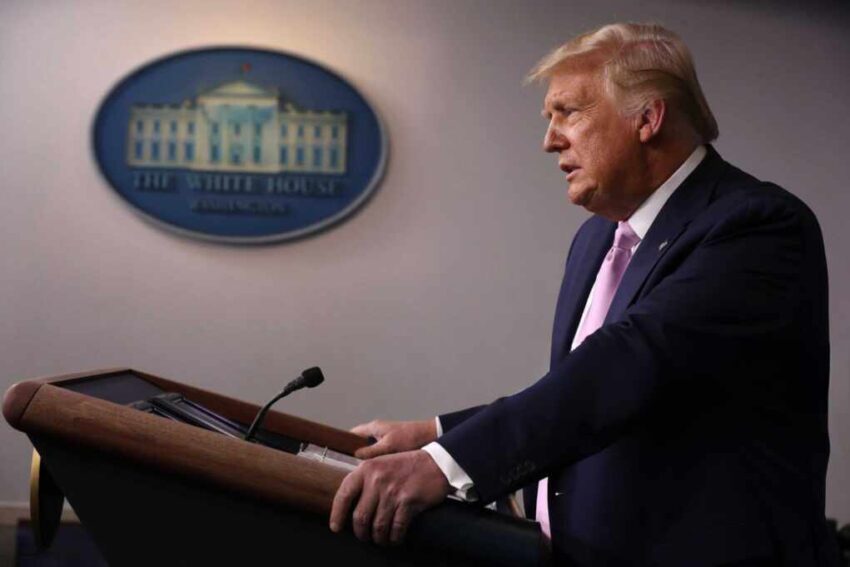A federal judge’s abrupt order to freeze President Trump’s new law cutting Medicaid funds to Planned Parenthood has ignited nationwide outrage over how one unelected official can derail both congressional mandates and voter expectations.
At a Glance
- Judge Indira Talwani issued a temporary restraining order blocking Trump’s Medicaid funding cutoff for Planned Parenthood.
- The One Big Beautiful Bill Act aimed to halt Medicaid payments to any group performing abortions and earning over $800,000 in 2023.
- Planned Parenthood sued, claiming the law unlawfully targets them and violates the Constitution.
- The restraining order sustains over $100 million in Medicaid funds for Planned Parenthood while the case proceeds.
- A follow-up hearing is scheduled for July 21 to determine if the block remains.
The Judiciary Strikes Again — Voters Ignored
On July 7, 2025, Judge Indira Talwani swiftly intervened with a 14-day restraining order preventing the Trump administration from enacting its latest crackdown on Planned Parenthood’s Medicaid funding. After a hard-fought legislative battle, the White House had successfully pushed the One Big Beautiful Bill Act through Congress, designed explicitly to prevent taxpayer money from funding abortion providers. But with a single stroke of the pen, Talwani stalled the effort — a move critics say subverts both democratic consensus and legislative authority.
Planned Parenthood and two of its affiliates wasted no time launching their legal challenge, branding the law a “punitive strike” against their services and advocacy work. The judge agreed, asserting the organization faced “immediate and irreparable harm” if funding was cut.
Watch a report: Federal Judge Blocks Trump’s Planned Parenthood Ban
Under the restraining order, the Department of Health and Human Services must continue Medicaid payments to Planned Parenthood, despite the new statute. This leaves taxpayers watching the same $100 million pipeline remain open, at least until the next court session on July 21. For over a million Medicaid patients who rely on Planned Parenthood for non-abortion services, the pause means business as usual. But for those invested in legislative integrity, it’s a familiar scene of judicial override stifling national policy shifts.
Congress’s Mandate, Judiciary’s Veto
President Trump signed the One Big Beautiful Bill Act on July 4, with the legislation clearly structured: any organization performing abortions and drawing more than $800,000 in Medicaid funds would lose federal dollars for one year. This targeted measure was an overt strike at Planned Parenthood — virtually the only entity meeting those financial thresholds.
Lawmakers backing the bill cited longstanding disputes over the Hyde Amendment and argued it was time to end the tacit subsidization of abortion providers. While Republicans initially sought a decade-long restriction, the final version settled for a single year — a compromise that still proved intolerable for the courts.
Planned Parenthood’s immediate lawsuit painted the law as unconstitutional, alleging it singles out the organization for political reasons and jeopardizes essential healthcare for Medicaid recipients. Talwani’s ruling effectively sides with that argument, freezing the law and gifting the organization a temporary yet impactful reprieve. The Trump administration has so far remained publicly silent, though supporters of the ban continue to argue that congressional spending powers are being shredded by judicial activism.
Patients, Politics, and Precedent
For the million-plus Medicaid patients dependent on Planned Parenthood for cancer screenings, STI testing, and contraceptive services, the legal impasse breeds uncertainty. Should the funding ban eventually be enforced, the consequences could include clinic closures, layoffs, and decreased healthcare access, especially in underserved areas. Meanwhile, taxpayers are left questioning how a single judge can so easily obstruct legislation passed by their elected representatives.
This case could establish a broader precedent: can Congress lawfully restrict federal funding to specific organizations based on their activities, or will the judiciary continue to shield such groups under constitutional arguments? Detractors decry the law as a blatant political vendetta that undermines healthcare, while proponents frame it as a long-overdue correction to federal spending priorities. As the next hearing looms, the public remains stuck in limbo, watching democracy stalled once more by the bench’s gavel.
Click this link for the original source of this article.
Author: Editor
This content is courtesy of, and owned and copyrighted by, https://deepstatetribunal.com and its author. This content is made available by use of the public RSS feed offered by the host site and is used for educational purposes only. If you are the author or represent the host site and would like this content removed now and in the future, please contact USSANews.com using the email address in the Contact page found in the website menu.








